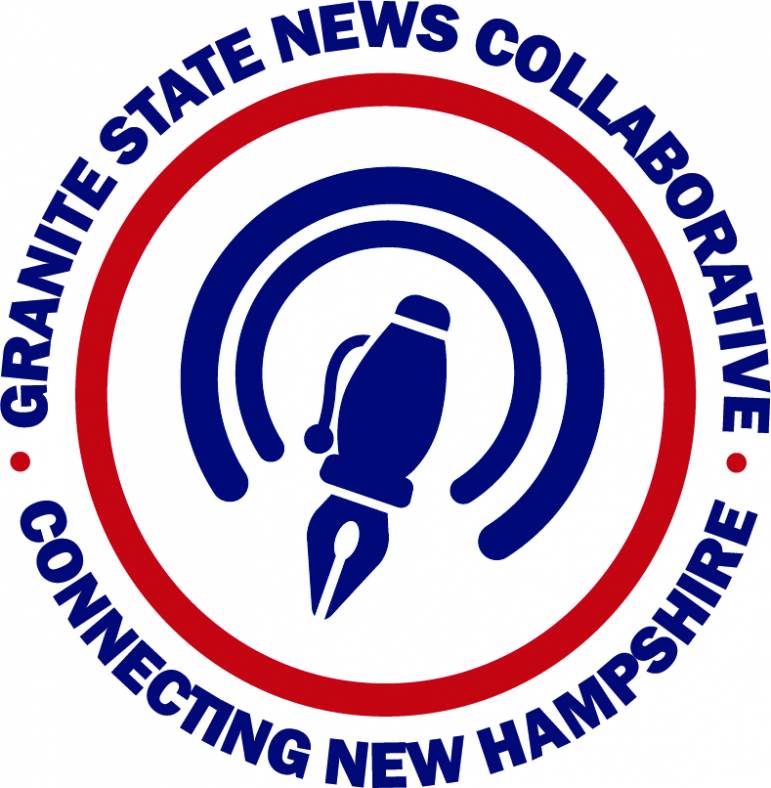Story Produced by Business NH Magazine, a Member of



While framed diplomas adorning the wall behind you during video meetings may still be a good way to display academic cred, today many are storing their academic accomplishments in the digital world in the form of micro-credentials.
In its most basic form, a micro-credential is a digital representation of academic achievement or skill gain, says Michael Mengers, director of the Career Advancement and Lifelong Learning Institute at the University of NH (UNH).
Unlike a traditional bachelors, master’s or PhD programs, micro-credentials can be tailored to meet the specific needs of employees and employers in a changing job market.
More than a million micro-credentials are being offered in the United States and not only by colleges and universities but also other organizations for credit or non-credit. During the first half of 2022, more than 1,700 organizations issued 1.7 million digital credentials, according to Accredible, a certification platform, up from 1,200 organizations in the first half of 2021 when 1.2 million credentials were issued each month.
According to a 2022 survey by Accredible, which looked at a cross-section of active clients, corporate training issuers outpaced higher education institutions—the top issuers in 2021—with 31% of all digital badges provided in the first half of 2022. Higher education institutions accounted for 21% of digital badges in the first half of 2022.
Other types of organizations issuing digital badges and certificates covered in the survey include professional and product certification providers (21%); associations and nonprofits (17%); and Learning Experience Platforms (LXPs), an artificial intelligence (AI) driven peer learning platform (5%).
Students completing a micro-credential program earn digital certificates or digital badges, which are housed on certification platform sites like Credly or Accredible. According to Accredible’s report, 79% of micro-credentials in 2021 were digital badges, 15% were digital certificates and 6% included both.
Accredible states on its website that “Digital badges are more visual and less formal than digital certificates” and tend to be for awards “that require less time or effort to earn.” Conversely, “Digital certificates are more formal in their appearance and their use. Issuers commonly use digital certificates for achievements and awards that require a lot of time or effort to earn.”
Mengers says many young people and working professionals are gravitating toward micro-credentials in growing numbers. And it is their digital nature that is a major reason for their growing popularity, he says. UNH has issued 8,717 micro-credentials since it began these programs in 2019. “Sharing one’s achievements is happening in a digital space. Traditional achievements go on a resume and can be put on a digital resume, but with micro-credentials there’s a little more utility to it.”

Supplementing a Degree
UNH Outreach and Engagement Project Manager and Micro-credential Manager Pamela Doherty says micro-credentials picked up steam since beginning three years ago at UNH. “People are starting to understand the importance of short bursts of education,” she says, explaining that students can also “stack” their digital credentials to enhance a traditional degree. “It gives them a way to supplement a degree with new skills.”
UNH is piloting a program called Campus to Career that offers digital badges by working through the university’s work-study program. This collaborative is designed to provide students with intentional and meaningful on-campus work experiences, Doherty says, explaining Campus to Career focuses on the “soft” or “power” skills that many employers are looking for, such as teamwork, communication, leadership, problem solving and complex thinking skills. The program, taught by UNH staff, helps students to articulate those skills, Doherty adds. “Supervisors of work study students provide students with the education and training rubrics to follow and when they achieve competency, they receive a badge.”
Reshaping the Higher Ed Narrative
Lynn Szymanski, director of workforce development for Great Bay Community College (GBCC), says the college is developing micro-credential courses that are credit based. “We’re pulling three courses from our early childhood education program and creating a micro-credential,” she says, adding that micro-credential courses, which are typically online, can be customized to meet specific needs for companies. She cites the work done with Community Partners in Dover, which developed a 12-week uncredited program to upskill the organization’s front-line workers. “We issued them a badge after the training,” she says, explaining that subject matter experts were brought in after the organization’s needs had been assessed.
With the average worker in the United States changing jobs every five years and people working longer, sometimes into their 70s and 80s, the benefits and utility of micro-credentials are also reshaping the narrative around traditional higher education programs, says Paul LeBlanc, president at Southern NH University in Manchester.
LeBlanc breaks the significance and function of micro-credentials into three parts: the need for constant upskilling in the workplace, as an opportunity for those who can’t attend a traditional two- or four-year program, and to address the return-on-investment (ROI) issues colleges and universities are facing.
“Short-term credentials are critically important, and we see the demand signals. Fifty-four percent of Google’s post-secondary searches monthly are for non-degree programs,” he says. “I do believe traditional degrees remain important and I don’t think these credentials are the end of the road, but I love the idea they provide people the ability to go in and out of a learning ecosystem as they need to upskill, reskill and expand their knowledge.”
LeBlanc says employers are not as aware of micro-credentials and the value they bring to the workforce as they are with other certifications. “Microsoft certifications may be ok, but there are a lot of other credentials people might not know about,” he says, adding that SNHU is working on a set of AI-centered micro-credentials to meet demand for such skills.
“And health care is another big area. This field is in crisis mode in terms of hiring. One thing driving micro-credentials is employers filling positions,” he says.
A Sign of the Times
Earlier this year, a survey conducted by Collegis Education and UPCEA (the association for college leaders in continuing education) reported that 95% of employers think it’s good if employees are earning micro-credentials.
More than 70% said that micro-credentials have helped their organization fill skills gaps, that they’ve helped improve their workforce quality and that their organization is increasingly willing to consider these types of credentials in lieu of four-year degrees. Employers did raise some concern. Seventeen percent of employers said they were concerned about irrelevant credentials and a lack of critical training, and 12% expressed worry about the quality of the education provided.
Doherty says micro-credentials are a good way for a company to search for job candidates. Based on key words associated with the credentials, a company can find potential employees along with the digital badges they’ve acquired. “People can put any skill they may have on a resume or on LinkedIn, but a micro-credential is validated and points back to a platform site,” she says. The badges contain metadata on the learner, the badge issuer, the criteria to earn it and the evidence that the criteria have been fulfilled. “This helps improve student success, and I wish they had had them when my kids were here. Combined with a degree, these experiences and skills can show employers people are prepared to work. It’s really cool.”
LeBlanc says that while organizations and employers realize they need to upscale their workforce around changing technology, such as AI basics, they may also need their managers to understand how to use it. “There is a constant pressure for all of us to upskill,” he says. And, he adds, “a lot of people for whom two and four years is a luxury can unlock opportunities with micro-credentials.” At the same time, LeBlanc says, “We don’t want to be in a society where people of privilege have degrees and everyone else has a micro-credential by itself.”

These articles are being shared by partners in The Granite State News Collaborative. For more information visit collaborativenh.org.
